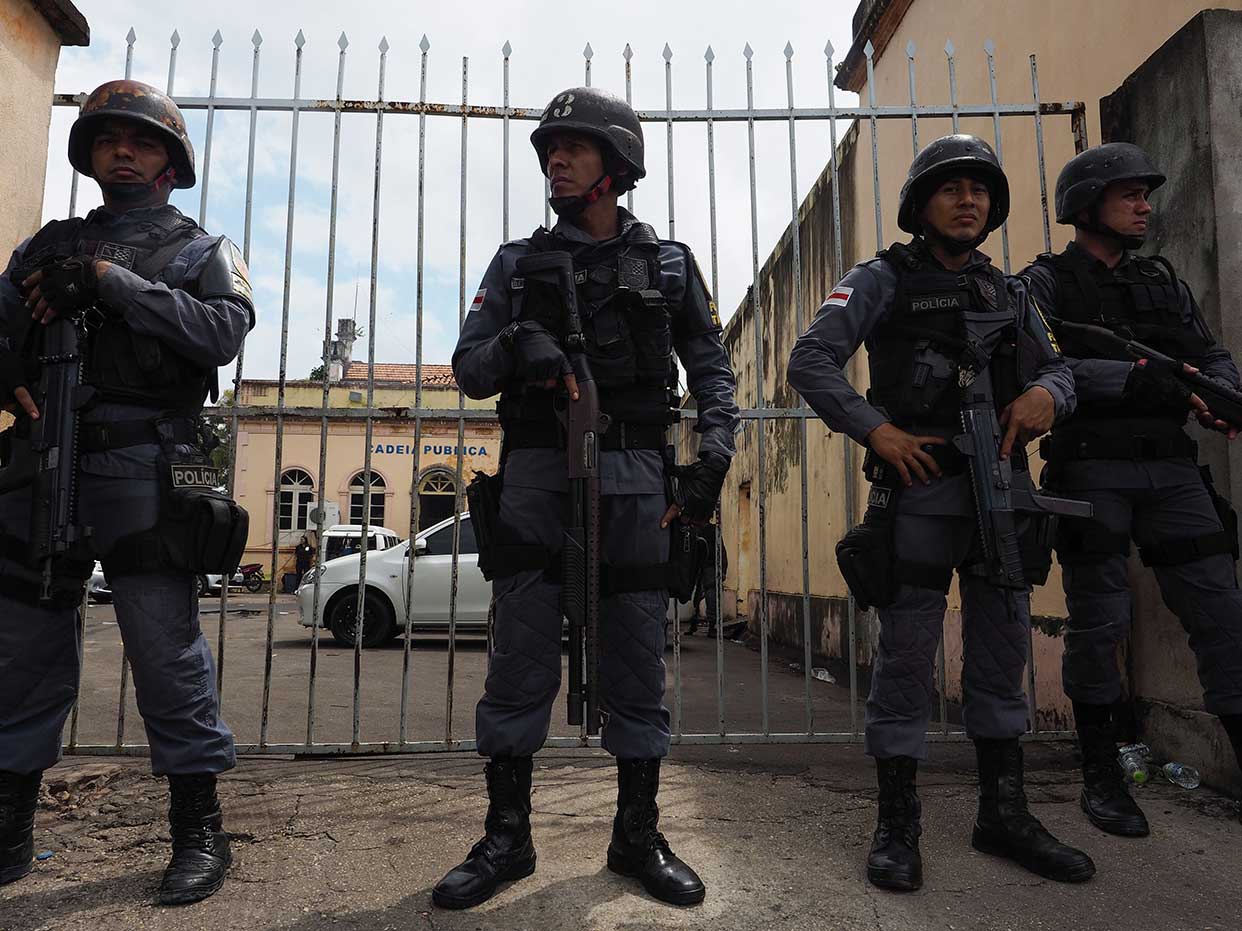A most violent year: Brazil murder toll hits record 63,800
Gang crime and domestic violence fuel homicide tally ahead of presidential election

A free daily email with the biggest news stories of the day – and the best features from TheWeek.com
You are now subscribed
Your newsletter sign-up was successful
Murder rates in Brazil rose by 3.7% to a record 63,880 killings last year, according to a new study released in the run-up to a presidential election dominated by the issue of violence.
So what is behind the nation’s steadily increasing homicide rates?
The director of the independent Brazilian Forum of Public Security (BFPS), which gathered the new data, said the problem had “been exacerbated by antiquated laws and police procedures and the growth in organised crime”.
The Week
Escape your echo chamber. Get the facts behind the news, plus analysis from multiple perspectives.

Sign up for The Week's Free Newsletters
From our morning news briefing to a weekly Good News Newsletter, get the best of The Week delivered directly to your inbox.
From our morning news briefing to a weekly Good News Newsletter, get the best of The Week delivered directly to your inbox.
“The numbers show we have a serious problem with lethal violence,” continued Renato Sergio de Lima. “We have two persistent phenomena: violence against women and criminal gangs dealing in drugs and arms.”
Serious crime has flourished in the absence of capable policing, with few murderers ending up in jail and authorities focusing on repressing criminals rather than on preventing and tackling the root causes of crime, The Guardian reports.
With little government action to give deprived youth hope for the future, “a culture of ultra-violence has set in”, says news site Americas Quarterly. Torture and decapitation of members of rival gangs is commonplace and, indeed, often celebrated in music and on social media.
But deadly force comes from both sides of the criminal justice system. The new BFPS report says that an average of 14 people die at the hands of police officers every day, according to The Guardian.
A free daily email with the biggest news stories of the day – and the best features from TheWeek.com
Meanwhile, violence against women has skyrocketed in recent years, with almost a third of women claiming to have suffered such abuse, The New York Times reports.
Brazil has the “seventh-highest rate of femicide in the world, with 4.4 murders per 100,000 women, according to a 2012 Brazilian survey called the Map of Violence”, the newspaper says.
And only around a quarter of women who suffer violence report it to the police.
“There are many reasons - stigma, economic dependence or concern for children,” explains Maria Laura Canineu, the Brazil director of Human Rights Watch. “But often, it’s the conviction that the state won’t do anything.”
The police force’s lack of resources and training often means that perpetrators do not face any repercussions, Canineu adds.
Crime is expected to be a key voter concern in Brazil’s upcoming presidential election, in October.
The candidates include far-right lawmaker Jair Bolsonaro and jailed former president Luiz Inacio Lula da Silva, who wants to “loosen gun laws and toughen up policing to tackle the rise in violence”, according to Reuters. Bolsonaro has a similar stance on policing, and has said that he would give officers “carte blanche” to kill suspects who fire on them.
-
 How the FCC’s ‘equal time’ rule works
How the FCC’s ‘equal time’ rule worksIn the Spotlight The law is at the heart of the Colbert-CBS conflict
-
 What is the endgame in the DHS shutdown?
What is the endgame in the DHS shutdown?Today’s Big Question Democrats want to rein in ICE’s immigration crackdown
-
 ‘Poor time management isn’t just an inconvenience’
‘Poor time management isn’t just an inconvenience’Instant Opinion Opinion, comment and editorials of the day
-
 Epstein files topple law CEO, roil UK government
Epstein files topple law CEO, roil UK governmentSpeed Read Peter Mandelson, Britain’s former ambassador to the US, is caught up in the scandal
-
 Iran and US prepare to meet after skirmishes
Iran and US prepare to meet after skirmishesSpeed Read The incident comes amid heightened tensions in the Middle East
-
 Israel retrieves final hostage’s body from Gaza
Israel retrieves final hostage’s body from GazaSpeed Read The 24-year-old police officer was killed during the initial Hamas attack
-
 China’s Xi targets top general in growing purge
China’s Xi targets top general in growing purgeSpeed Read Zhang Youxia is being investigated over ‘grave violations’ of the law
-
 Panama and Canada are negotiating over a crucial copper mine
Panama and Canada are negotiating over a crucial copper mineIn the Spotlight Panama is set to make a final decision on the mine this summer
-
 Why Greenland’s natural resources are nearly impossible to mine
Why Greenland’s natural resources are nearly impossible to mineThe Explainer The country’s natural landscape makes the task extremely difficult
-
 Iran cuts internet as protests escalate
Iran cuts internet as protests escalateSpeed Reada Government buildings across the country have been set on fire
-
 US nabs ‘shadow’ tanker claimed by Russia
US nabs ‘shadow’ tanker claimed by RussiaSpeed Read The ship was one of two vessels seized by the US military